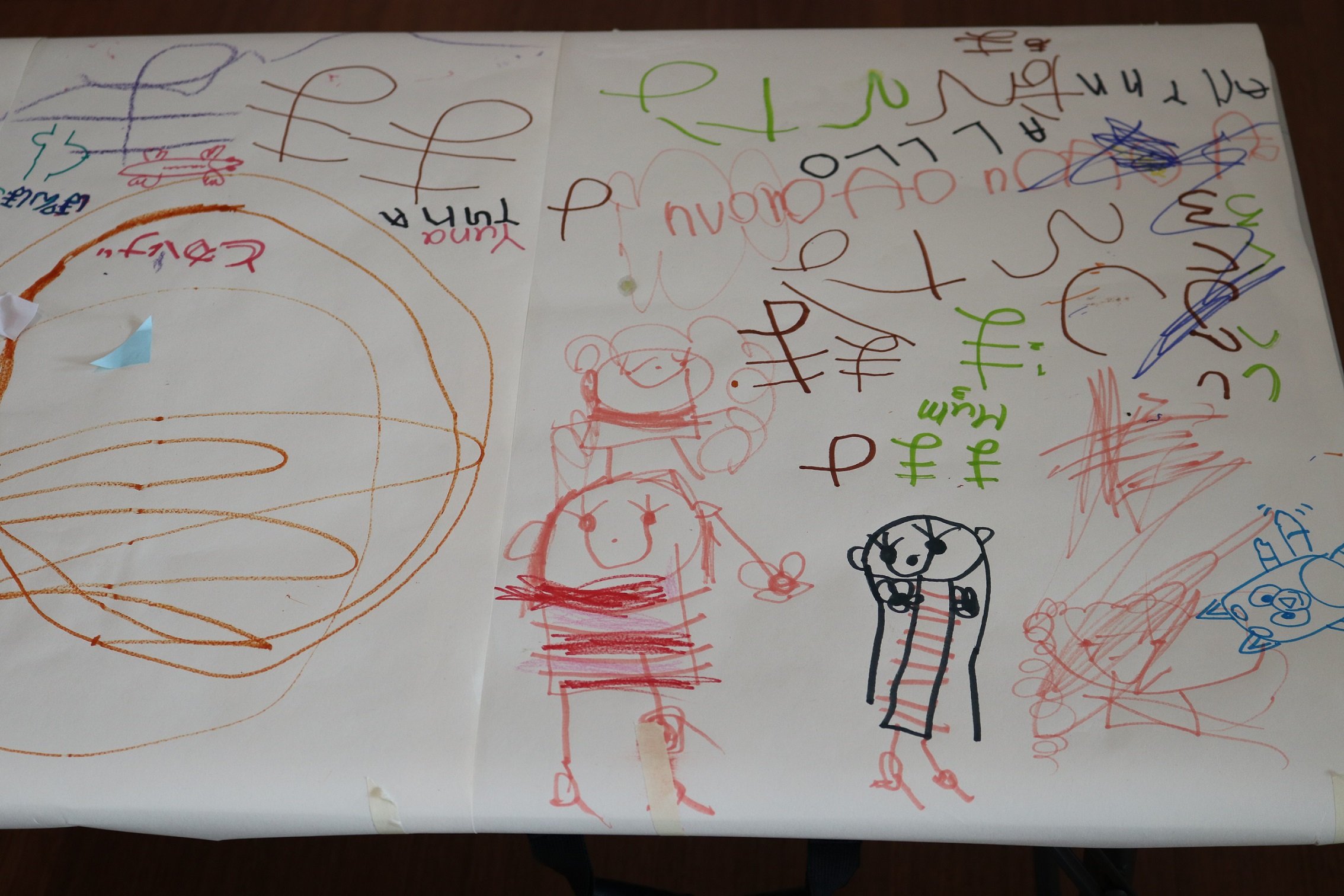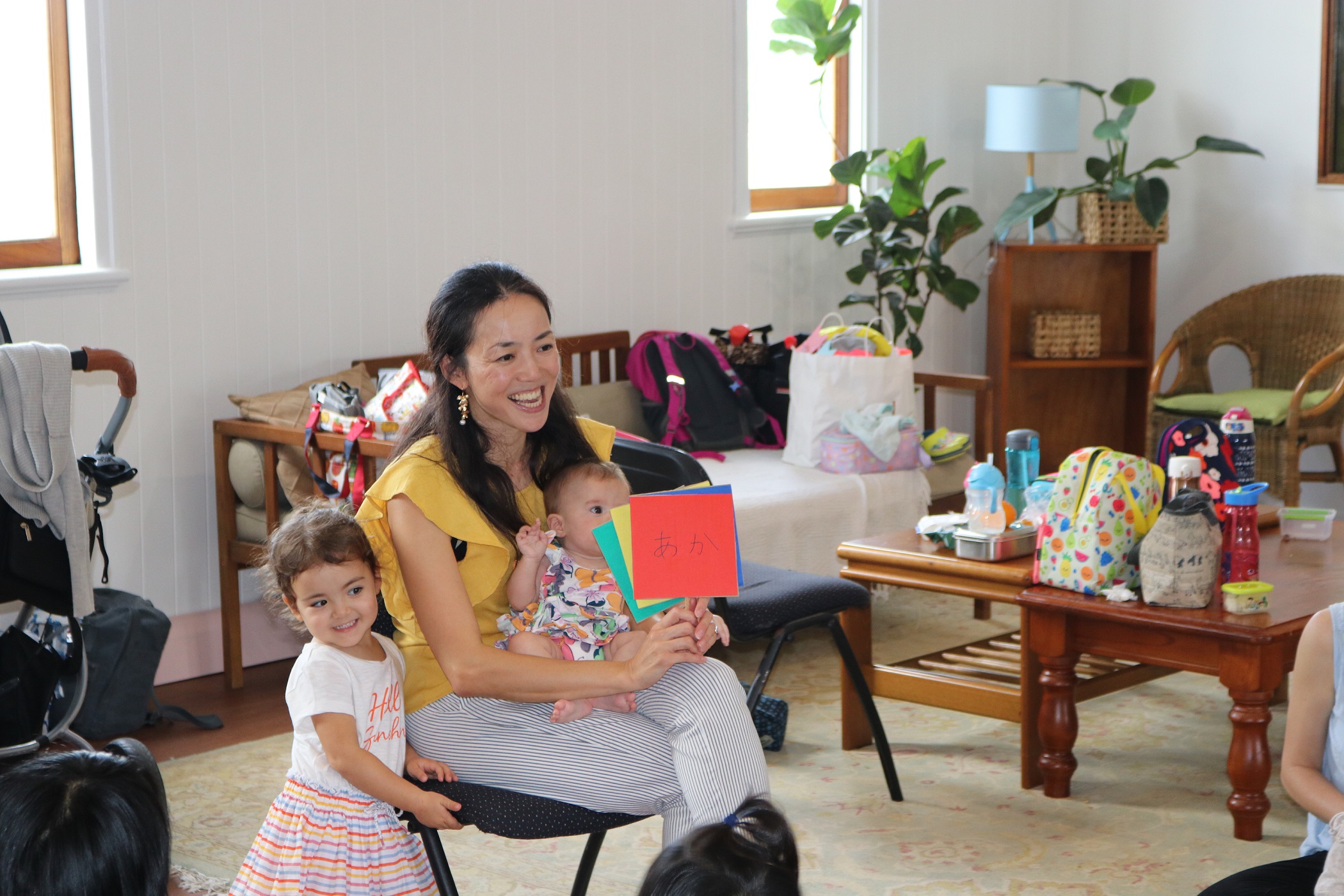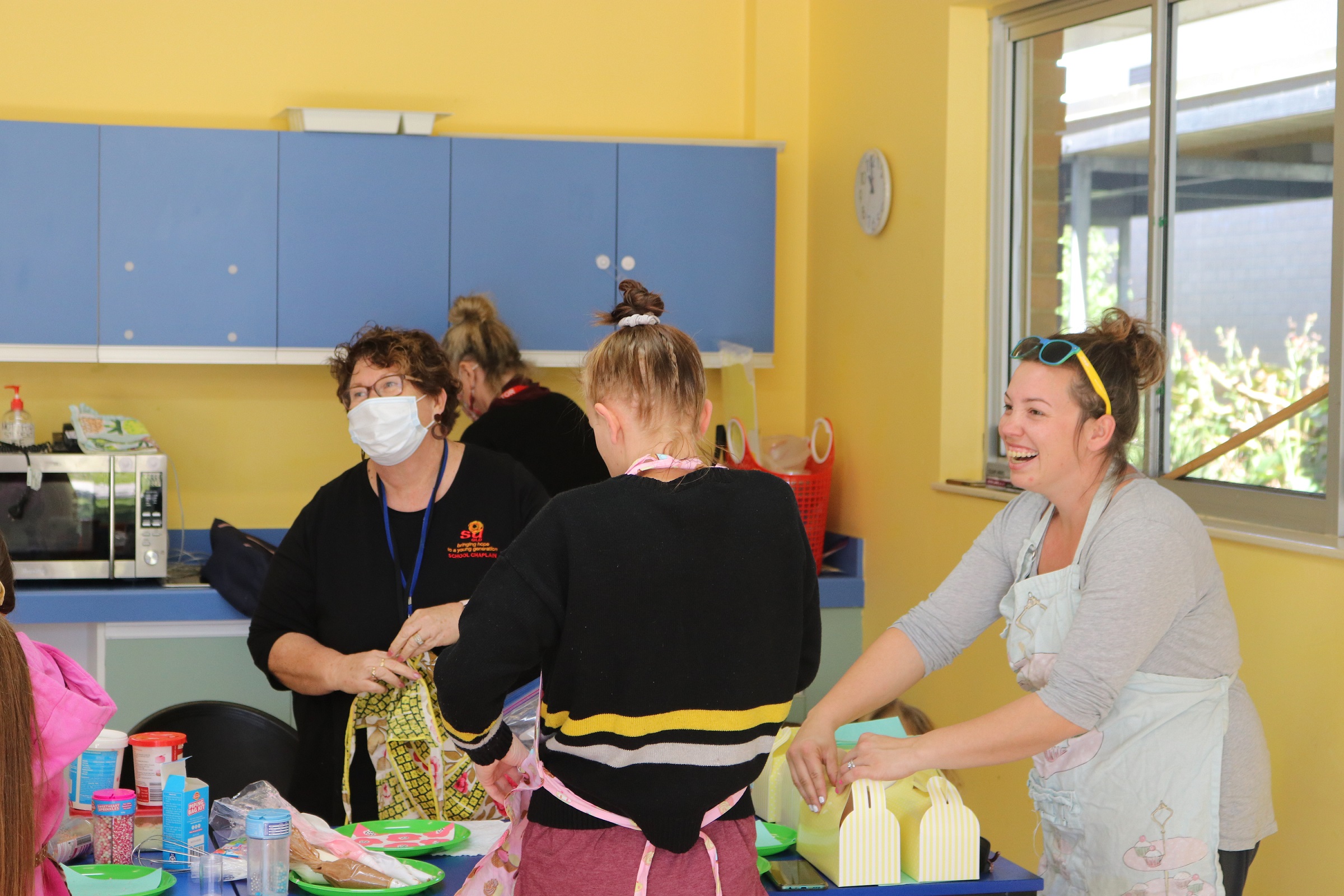How a group of parents are passing on language, culture, and traditions to their children.
In Japan, May 5th is a national holiday to celebrate Kodomo no hi, or Children's Day. This holiday is dedicated to honouring children and celebrating their growth, strengths, and individuality. On Kodomo ni hi, koinobori (carp kites) are flown outside homes to bring bravery, luck, and good fortune to the children inside.
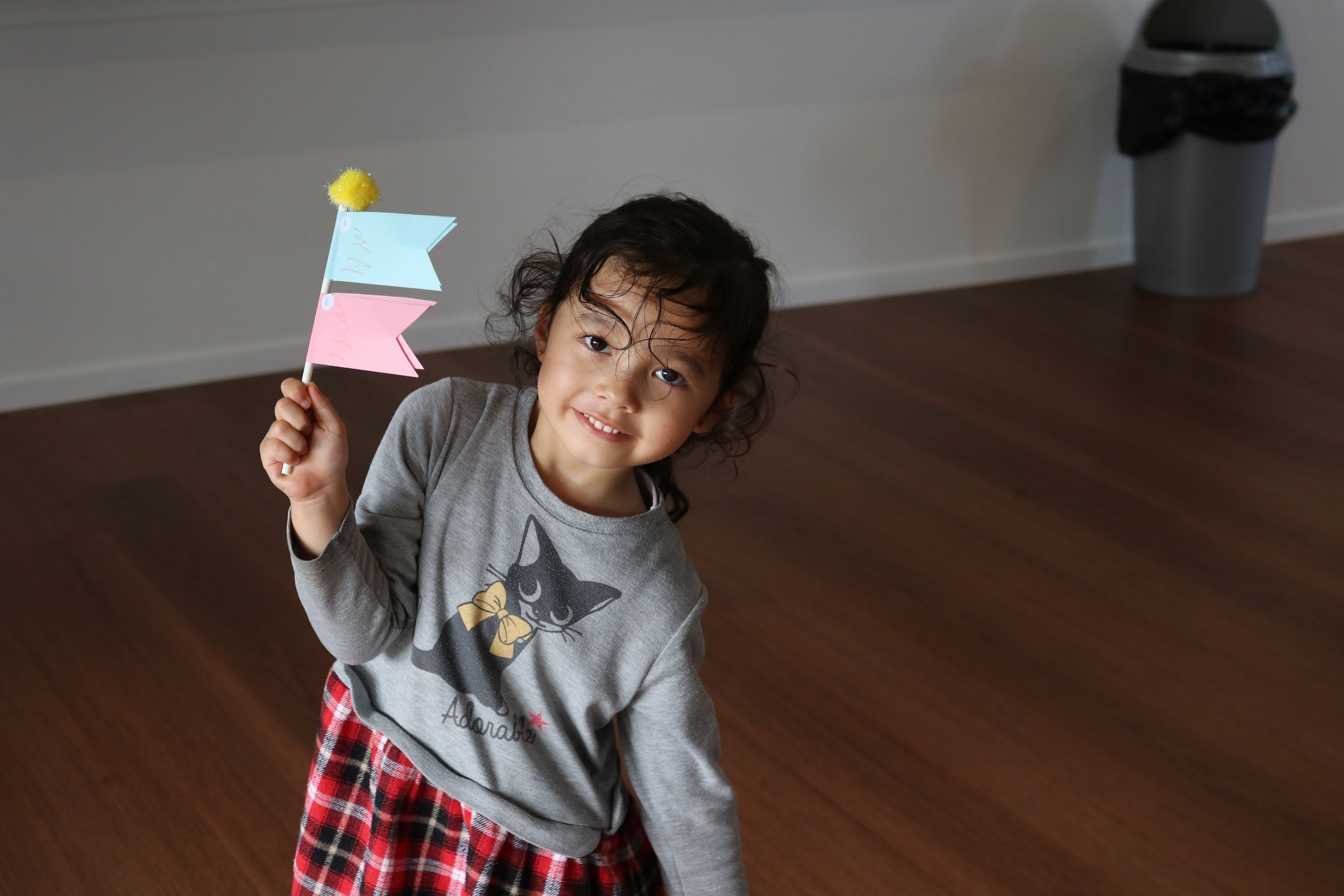
To celebrate this special day, Play Matters Australia visited Brisbane North Japanese Playgroup to learn how a community of parents are teaching their children about Japanese language and culture.
Operating for over ten years, Brisbane North Japanese Playgroup is run by a group of passionate parents. Current Volunteer Playgroup Facilitators Masayo and Mayo coordinate an engaging playgroup session consisting of free play, group physical activity, craft, music, and shared reading, delivered entirely in Japanese!
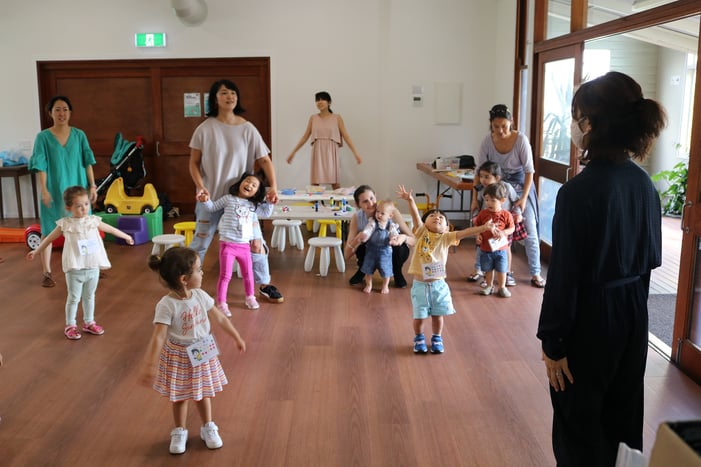
When asked what motivates them to volunteer, Mayo said, “through this playgroup, my children and I have learned a lot and met beautiful friends. As my youngest child will be in prep next year, I wanted to give something back to the group before leaving.”
Both Japanese and non-Japanese families come from across Brisbane and the Moreton Bay Region each Friday (during school term) to connect and share. As a native Japanese speaker, Mayo most enjoys the opportunity to reconnect with her culture and chat with other parents in Japanese.
“It is also a good opportunity for children to experience Japanese culture and language. It helps them to develop the base of learning multiple languages and understand their backgrounds.”
The Early Years Learning Framework (EYLF) describes cultural competence as “much more than awareness of cultural differences. It is the ability to understand, communicate with, and effectively interact with people across cultures.”
This is precisely the learning outcome for children in multicultural playgroups such as the Brisbane North Japanese Playgroup as they:
- Develop positive attitudes towards cultural differences through positive play experiences
- Gain knowledge of different cultural practices through engaging activities
- Develop skills for communication and interaction across cultures
The Play Matters team observed so much learning in action during the playgroup session, specifically the below EYLF learning outcomes.
| Outcome 1: Children have a strong sense of identity. |
| 1.1. Children feel safe, secure, and supported. |
| 1.3. Children develop knowledgeable and confident self identities. |
| 1.4. Children learn to interact in relation to others. |
| Outcome 2: Children are connected with and contribute to their world. |
| 2.1. Children develop a sense of belonging to groups and communities and an understanding of the reciprocal rights and responsibilities necessary for active community participation. |
| 2.2. Children respond to diversity with respect. |
| Outcome 3: Children have a strong sense of wellbeing. |
| 3.1. Children become strong in their social and emotional wellbeing. |
| Outcome 4: Children are confident and involved learners. |
| 4.1. Children develop dispositions for learning such as curiosity, cooperation, confidence, creativity, commitment, enthusiasm, persistence, imagination, and reflexivity. |
| 4.4. Children resource their own learning through connecting with people, place, technologies, and natural and processed materials. |
| Outcome 5: Children are effective communicators. |
| 5.1. Children interact verbally and non-verbally with others for a range of purposes. |
| 5.2. Children engage with a range of texts and gain meaning from these texts. |
| 5.4. Children begin to understand how symbols and pattern systems work. |
Thank you to Masayo, Mayo, and all the Volunteer Playgroup Facilitators who have come before them for empowering parents in their role as their child’s first teacher and creating a vibrant community where families can connect, learn, and grow together. To learn more about Brisbane North Japanese Playgroup, please click here.
To learn more about starting a playgroup, please click here.
